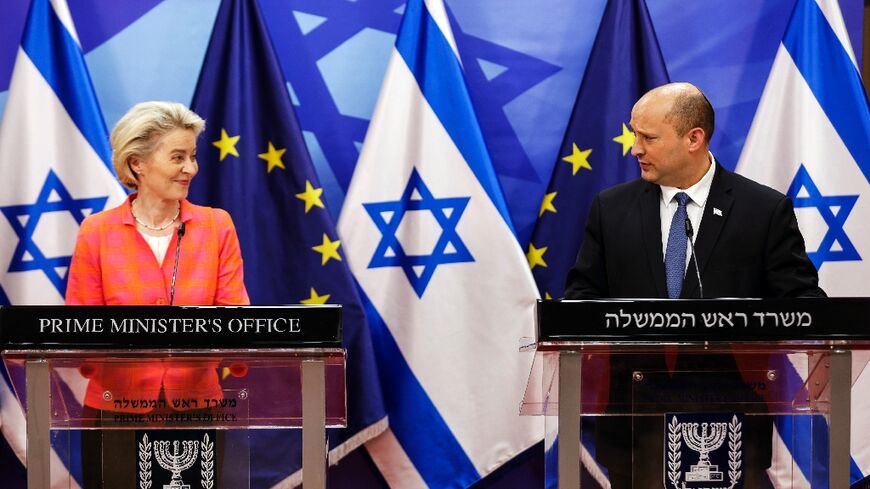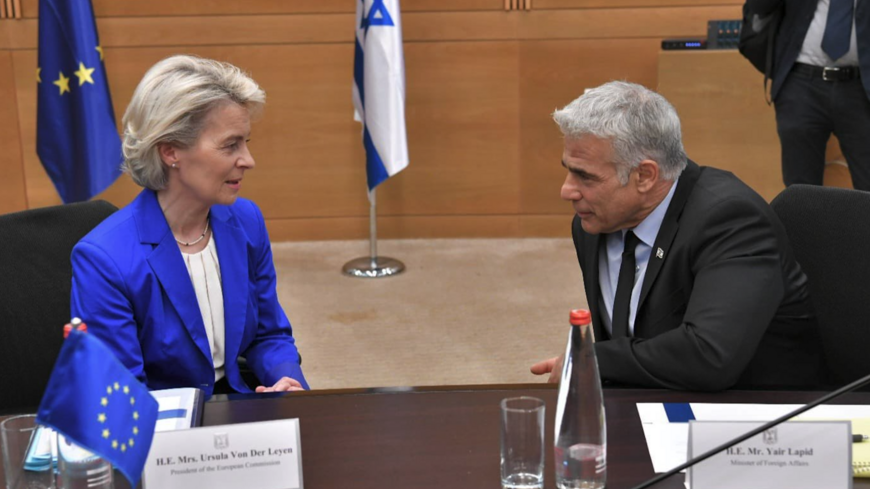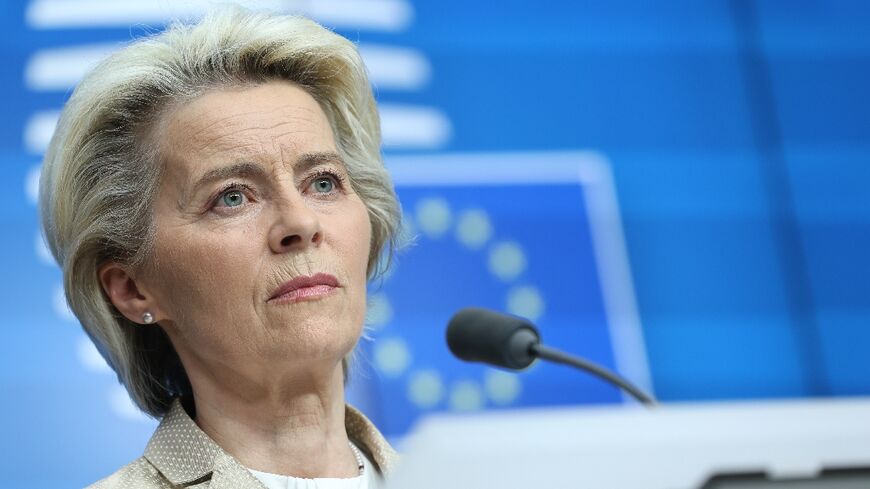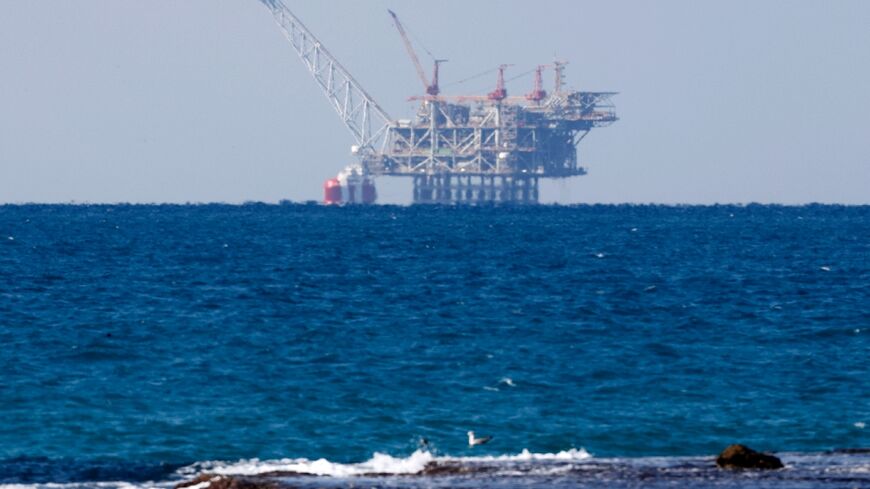Facing gas 'blackmail' by Russia, EU turns to Israel
The European Union wants to strengthen its energy cooperation with Israel in light of Russia's use of gas supplies to "blackmail" its members over the Ukraine conflict, European Commission chief Ursula von der Leyen said Tuesday.
"The Kremlin has used our dependency on Russian fossil fuels to blackmail us," she said in a speech at the Ben Gurion University in the southern Israeli city of Beersheba.
"Since the beginning of the war, Russia has deliberately cut off its gas supplies to Poland, Bulgaria and Finland, and Dutch and Danish companies, in retaliation for our support to Ukraine."
But Moscow's conduct "only strengthens our resolve to break free of our dependence on Russian fossil fuels," she said, noting the EU was "exploring ways to step up our energy cooperation with Israel," with work on an underwater power cable and a gas pipeline in the eastern Mediterranean.
Israel exports gas to Egypt, some of which is then liquefied and shipped to Europe. A significant increase in gas exports would require major long-term infrastructure investments.
In talks with Energy Minister Karine Elharrar on Monday, von der Leyen reiterated "the EU need for Israeli gas," the minister's spokesperson said.
The spokesperson said there had been talks since March on establishing the legal framework to enable more Israeli gas exports to Europe via Egypt.
Another option would be the EastMed project, a proposal for a seafloor pipeline linking Israel with Cyprus and Greece. But US President Joe Biden's administration has questioned the viability of the project, given its huge cost and the time it would take to complete.
Another proposal is a pipeline connecting Israel to Turkey.
Israel's ties with Ankara have thawed in recent months after more than a decade of frosty relations and analysts have said Turkey's desire for joint energy projects has partly triggered its outreach to Israel.
That pipeline project would cost $1.5 billion and take two to three years to complete, according to estimates.
Israel is estimated to have gas reserves of at least one trillion cubic metres, with domestic use over the next three decades expected to total no more than 300 billion.
Von der Leyen was due to hold talks with Prime Minister Naftali Bennett later Tuesday, before travelling on to Egypt.






